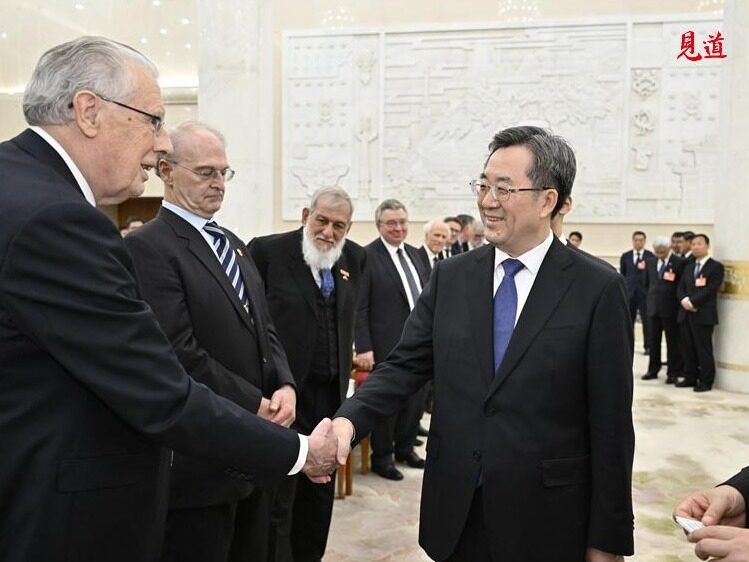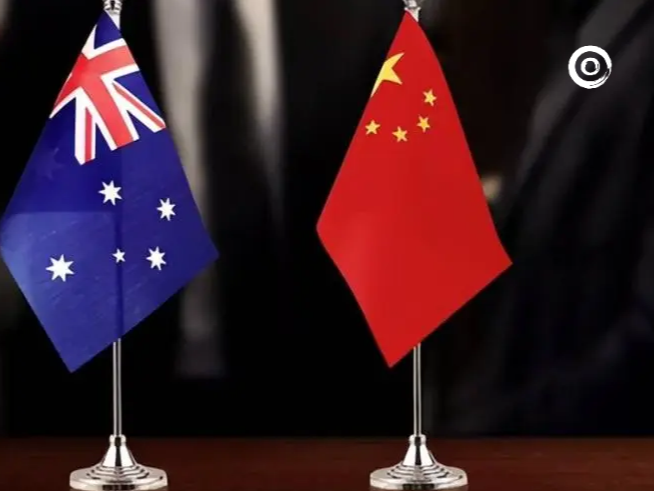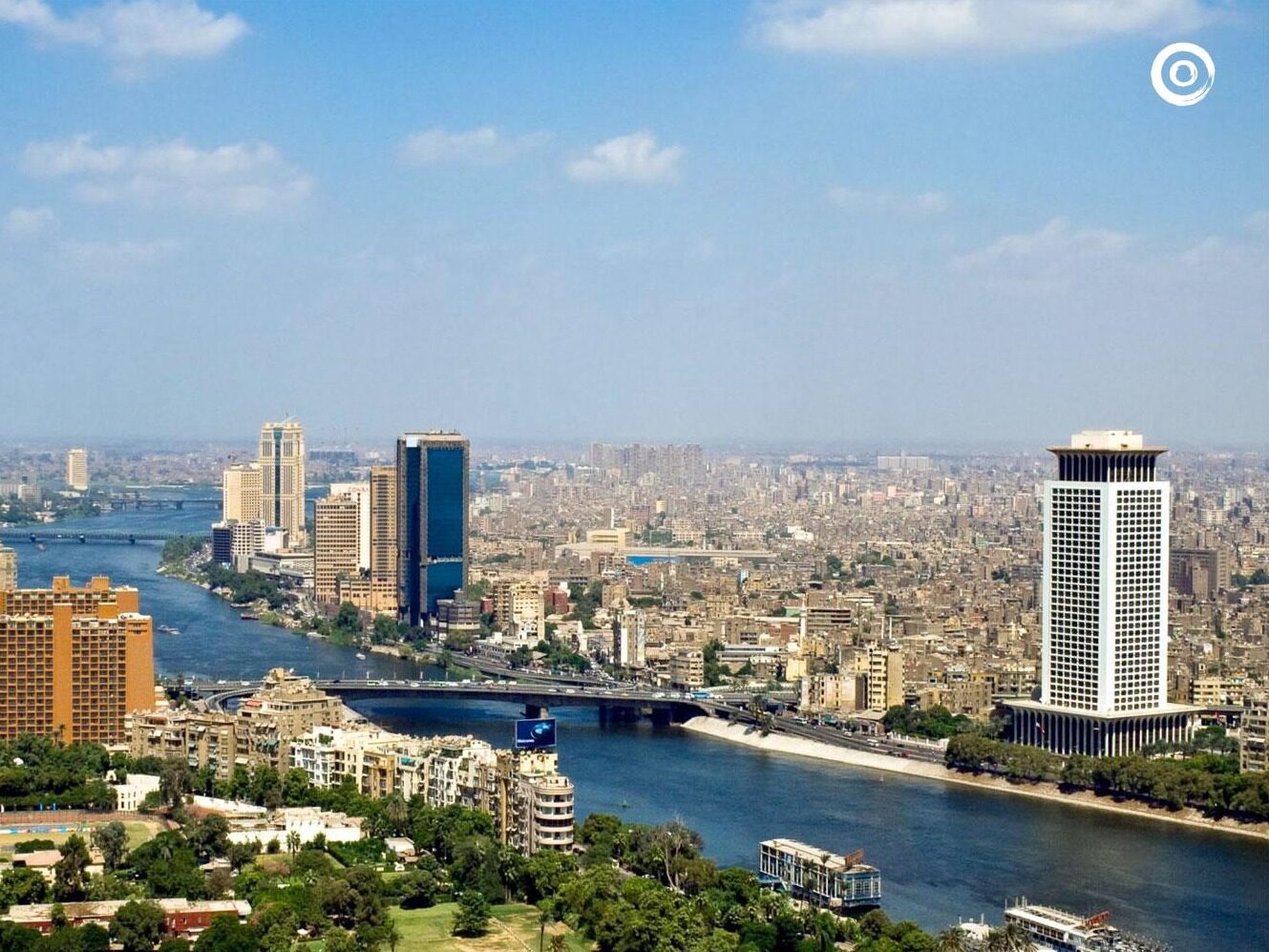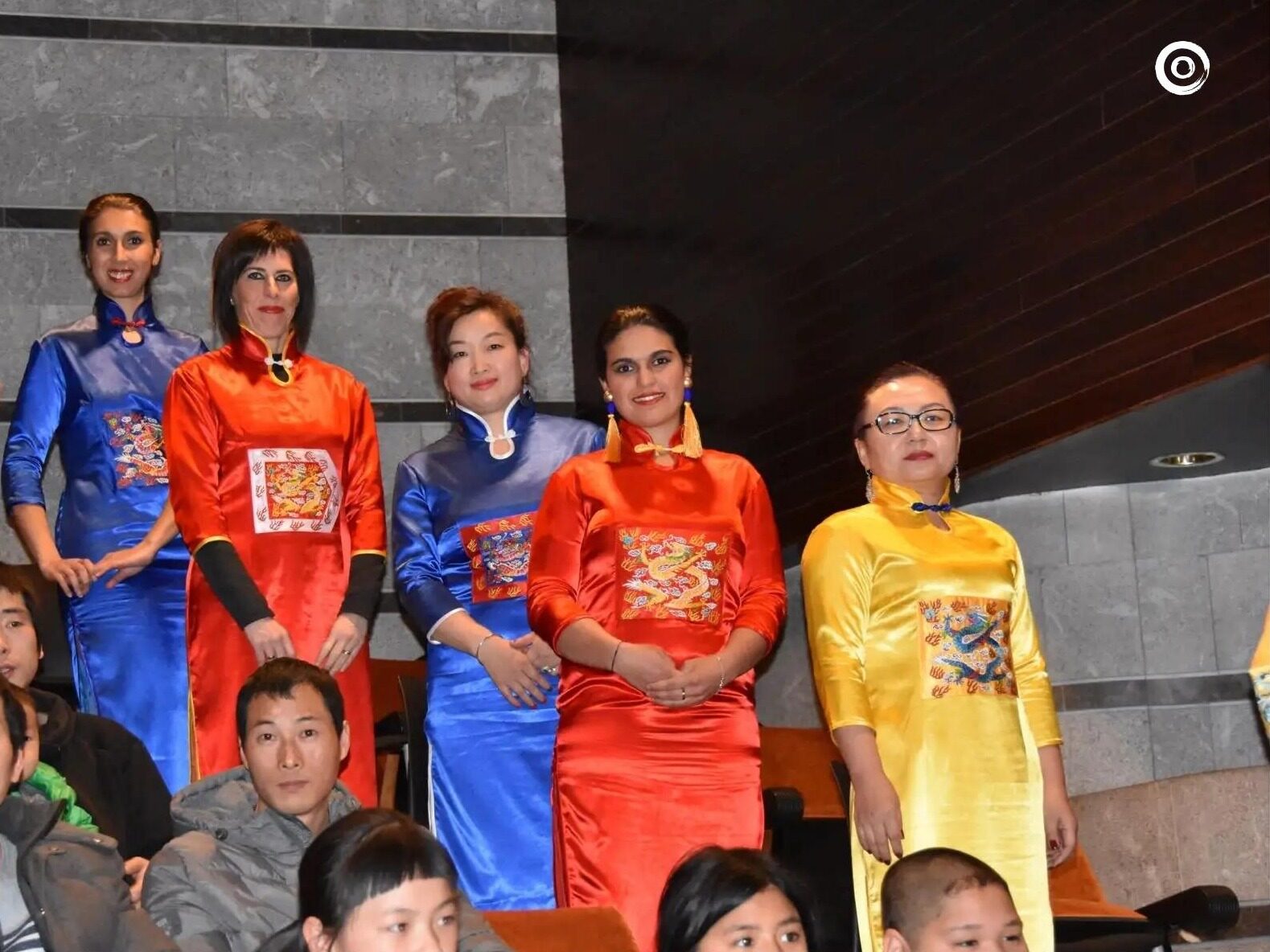- China’s development model has real and powerful forces that can help the entire world

In 1921, the Chinese Communist Party rose amidst suffering and led China to complete the new democratic revolution. 2021 marks the 100th anniversary of the founding of the Chinese Communist Party. Former Iraqi Prime Minister Adil Abdul Mahdi sent an article entitled "China's Rejuvenation and Its Impact on the New World Order" through our embassy in Iraq to express congratulations. The full text is as follows:
The French scholar Alain Perefit published a book titled "When China Awakens The World Will Shake" in 1973. Many people disagree. At that time, China was a third world country, with poor people's livelihood, and difficulties in economic and social development. As we all know, as early as 1816, Napoleon I, who was exiled on St. Helena, said: "China, let him continue to sleep. Once he awakens, the whole world will tremble."
In 1972, China's per capita income was US$132, ranking 114th in the world; the US per capita income that year was US$6094, ranking second in the world. In 2019, China's per capita income reached 10,262 U.S. dollars, advancing to 68th in the world ranking; American per capita income was 65,118 U.S. dollars, ranking ninth. In 47 years, China's per capita income has increased by 77 times, while the US has only increased by about 10 times. In 1972, China's gross domestic product (GDP) was US$0.114 trillion, ranking seventh in the world, while the United States ranked first in the world with US$1.279 trillion. In 2019, China's GDP reached 14.342 trillion U.S. dollars, jumping to second in the world, approaching the US's 21.374 trillion U.S. dollars. The US GDP has increased by nearly 16 times in 47 years, while China has increased by about 126 times. It is estimated that China’s economy will surpass the United States in 2028 instead of 2033 as previously estimated. According to statistics from Eurostat, the trade volume between China and Europe will reach 586 billion euros in 2020, which is 31 billion euros more than the 555 billion euros trade volume between Europe and the United States.
In fact, it is not the whole world that trembles because of China's rise, but those countries that have plundered the wealth of China and other third world countries for a long time in the past few centuries, undermined their rights, contained their development, and tried to restore colonialism.
Chinese revival is different from western revival
The people of Asia, the people of the third world, and even people all over the world regard China's rise as a gospel, and they can follow suit and benefit from it. Now that China is able to get rid of the fate of being colonized and its dependence on colonizers, it is no longer poor and weak, and it has developed technology and advanced academic institutions, economic institutions and management institutions, and even surpassed the world in some respects. The most advanced country, so why can't other third world countries get inspiration from China's development experience?
China's rejuvenation does not rely on colonization and plundering other countries, and China is not keen on imposing its own development model, culture, system, and standards on others. Fundamentally speaking, China's rejuvenation depends on hard work and mobilization of the people's strength. China's rejuvenation is taking a balanced road, which not only draws nutrition from traditional ideas and practical exploration, but also learns from the experience of other countries, especially Western countries. According to "Global Economic Outlook" (Global Economic) statistics, China's foreign investment accounted for 1.09% of GDP in 2019, while China's foreign investment was zero in 1993. Since China can achieve such an achievement and can feed and educate one-fifth of the world's population, why can't other countries do it?
People have been inspired by the Western Renaissance, but also tried to learn from its experience and benefit from it. However, after the Renaissance, what the West brought to the world was colonialism, imperialism, "Western superiority" and racism. It continued to invade, occupy, plunder, blockade, exploit, sanction, suppress and discriminate against other countries, leading to the history of these countries. Traditions are disrupted, society is torn apart, roads to development are closed, and they are also caught in war due to the colonists’ idea of divide and rule and imposed border divisions. In this context, the world is divided into modern developed countries in the north and poor and backward countries in the south.
In the process of opposing imperialism and colonialism and striving for national independence, China took the road of encircling the city from the countryside and achieved national liberation in accordance with the actual domestic conditions. In the process of development, China did not completely destroy the old traditions, nor did it completely Westernize. Instead, it combined Chinese and Western cultures, consciously combining traditional Confucian culture with scientific socialism, and realizing that foreign countries serve China and the past serves the present. China’s success and accumulated valuable experience at the price of blood and life, suffering and failure have provided the world with a development model different from that of the West. Relying on its strong mobilization ability, China has continuously developed infrastructure and pillar industries, and connected its vast territory through an efficient transportation network. Based on its own national conditions and national strength, China chose the most suitable mode of labor and production, through development and progress and fair competition, rather than coercion and conquer, won the honor and victory for the East.
The path to the new world order is integration, symbiosis and competition, not hegemony
The new world order has no choice but to blend Eastern and Western civilizations. It should not be any form of hegemony, control, and imposed values. The world order is neither communism nor capitalism, nor is it Islam, Christianity, Judaism or any other form. The world order should integrate all of these, harmonious coexistence of multiple systems, dialogue and exchanges with each other, formulating fair standards, coordinating the demands of all parties, and giving equal opportunities to all nations and countries. The new world order should be fair and transparent, and should not be controlled by secret or semi-secret gangs under the guise of "international society." The so-called "international society" represents only a few countries and groups in certain fields. They only want to control money, power, and vital sectors, and use repressive methods, media, networks, banks, military operations, and intelligence to control other major powers. In most countries, the way they operate lacks transparency and at the expense of the general interests of mankind.
The rights and obligations enjoyed by all countries in the world should be like citizens of a country, and both rich and poor have equal opportunities. Countries are not divided into three or six or nine classes. There is no absolutely good governance and peaceful country in the world, and there is no absolutely rogue or terrorist nation. When a country has the idea and behavior of aggression against another country, the international community should be able to define such aggression and take a unified position in accordance with internationally recognized standards. If there is no uniform and recognized standard that defines the concepts of aggression, terror, injustice, and freedom and slavery, certain countries should not take this power as their own in the name of the international community and deprive other countries of their rights. Those countries that have a history of colonizing other countries, discriminating against other countries, and invading other countries have inherited these heritages to a large extent and dream of "returning to their old businesses." The settlers who occupy the Palestinian territories and the countries that support them are the best examples. The United Nations condemns colonialism and the infringement of the rights of other countries. Chapter 11 of the Charter of the United Nations and a series of resolutions have clarified the importance of colonial countries’ independence, emphasized national self-determination, and condemned racism, colonialism, and terrorism. It promises to eliminate all forms of colonialism, requires colonists to pay compensation to the colonies, and regards colonial acts as crimes against humanity.
The Belt and Road Initiative is a continuation of historical practice
Europeans went on sea adventures in order to bypass the "Silk Road". Columbus's voyage to the sea to explore the spice producing area of India is an example. It is true that the Europeans proved that the earth is round and discovered new continents during their adventures at sea, and made some contributions to the development of human society and the progress of human civilization. However, the achievements brought about by the new scientific and geographical discoveries brought about by the Enlightenment were used by the West to promote colonialism, and the scale of this colonial invasion is unprecedented in human history. It must be noted that any achievement made by Western countries comes at the cost of greater damage to other countries and regions. This explains why there are differences between North and South, West and East, developed countries and backward countries in the world today. The improvement of human abilities comes at the cost of breaking the balance between life and the environment. In the past few centuries, the ties between continents and countries have been severed, and the philosophy of barbaric life centered on profit-making, egoism and hedonism has replaced the philosophy of balance between spirit and material, individual and collective, and human and nature. The Belt and Road Initiative is to restore everything that was destroyed.
The Belt and Road Initiative is a revival of the "Silk Road". The "Silk Road" was proposed by the German geographer Ferdinand Richthofen in 1877 to describe the network of relations connecting the countries of Asia, Africa and Europe. This web of civilization has lasted for thousands of years. The East and Asia thousands of years ago were important centers of world civilization in terms of economy, science, management or spirituality. With the rise of colonialism, the centrality of Asia declined. The "Silk Road" was the logistics, cultural, and social network of the ancient world. It was a network of mutual learning among civilizations, exchanges between countries, and exchanges between people. However, Western colonialism tore this network apart.
The revival of China, the East, and the "Silk Road" that have frightened some countries are a return to equality and fair competition, and a rejection of discrimination, arrogance, and unfair development. Turning to the East does not mean abandoning the West. It is that the East and the West will give full play to their own strengths, not at the expense of each other’s interests to establish their own position in history and reality. It is no longer about making oneself rich and making others poor; , Let others lag behind; let yourself be the makers of values and standards, and let others become recipients.
China has revived the ancient project of the "Silk Road", responding to the fundamental needs of people all over the world. In the past, it was all countries scrambling to go to China, but now it is China that actively embraces all countries in the world. No matter who interacts with whom, the goal is mutual benefit and win-win results. Some countries even attempt to distort this fact. The One Belt One Road initiative proposed by Chinese President Xi Jinping in 2013 is of great significance not only to China, but also to the revival of Eastern countries, Asia, the West, and even the entire world.
As of January 30, 2021, China has signed 205 cooperation documents for the joint construction of the Belt and Road with 140 countries and 31 international organizations. Fundamentally speaking, the ancient "Silk Road" provided a channel for countries in the ancient world to explore and understand China, and opened the door for them to gain insight into the mysteries of Chinese civilization, including silk production. The trade between the East and the West is an important factor in the revival of the East and Asia. The "Silk Road" has brought both parties the goods they need, and at the same time promoted the development of culture, religion, customs, experience, spirituality and social values. Communication and dissemination. After centuries of unbalanced and unfair colonial order, the Belt and Road Initiative has become an effective way to return to a balanced and fair normal order. The return of the vitality of the "Silk Road" is the return of the vitality of the East, Asian countries, Africa and the entire world. The joint construction of the Belt and Road is the voice of the times, just as the ancient "Silk Road" was required by history. Just as the "Silk Road" has served human civilization and exchanges for thousands of years, so has the Belt and Road Initiative. The Belt and Road Initiative is a road to rejuvenation for all countries in the world. Its purpose is to promote exchanges and mutual learning among all countries in the world, not to destroy other civilizations or steal their wealth.
China's revival follows the law of historical development
The third world countries are not worried about the rise of China. In different historical periods, China has provided assistance to the third world countries in many ways, such as national liberation, national development, and protection of values and traditions. China respects the sovereignty, traditions, and values of other countries, and does not impose its own systems, development models, and values like Western countries do. We have also noticed that the experience of the Communist Party of China is different from that of other countries. It has no intention of letting other countries follow suit. Instead, it allows countries to choose their own development paths based on their own national conditions. Whether it is the socialist road, the capitalist road, or other roads, no development path is universal.
China followed the people's war ideology, followed the road of encircling cities from the countryside, and achieved national independence and liberation. After the reform and opening up, China proposed to build a socialist market economy, with public ownership as the mainstay and the common development of multiple ownership economies, follow the laws of domestic and international markets, give full play to market forces, and take overall consideration of demand, quality, cost, competition, and priorities. Continuously make new developments. Different from the Soviet Union’s development model where quantity precedes quality, national demand precedes people’s demand, central demand precedes local demand, and lack of sufficient domestic and international competition, China respects market laws and consumer demands, and formulates policy standards and production on this basis. Standards, its products are even better than those of Western countries in terms of quality and cost. Therefore, the West can only offset China's influence and prevent the export of Chinese goods through trade protectionism and "demonizing" China. China's development model has a real and powerful force, which can not only help the entire world, but also enable itself to achieve sustainable development and eliminate some possible shortcomings and deficiencies. Western society has reached a developed stage in terms of welfare and protection of civil rights, but these achievements are not achieved overnight. The prerequisite is to maintain long-term unity and stability and continue to accumulate strength to curb various contradictions and differences. History has proven, and the future will also prove that if national capabilities are weakened, then whether it is socialism, capitalism, or any other model, the scope of freedom will shrink and the ability to withstand differences will also decline.
China is a partner and supporter of third world countries including Iraq
China helps third world countries formulate development plans, and supports third world countries in their pursuit of national liberation, independence and safeguarding national sovereignty on the international stage. China directly or indirectly helps third world countries to improve the living conditions of the lower classes, providing them with high-quality and low-cost goods, and improving their working conditions and real conditions.
As far as Iraq is concerned, China stands with us on all issues. China respects our sovereignty and will, and will not impose its own development model, values or policies on us like other countries. It is true that China does need energy, but after China entered Iraq, it has sincerely cooperated with us. As early as 2008-2009, China National Petroleum Corporation (CNPC) signed a cooperation agreement with the Iraqi Ministry of Petroleum, and oil companies in other countries were hesitant. These agreements are also the beginning of successful cooperation between China and Iran. China has successfully helped Iraq increase the oil industry's production capacity and export volume from the world's eighth and tenth to fourth and third places, respectively. Currently, Iraq ranks second in both the oil industry's production capacity and exports in OPEC countries. Chinese companies occupy a very important position in the Iraqi oil industry, and they have brought many new technologies and experiences to Iraq through the exchange of technical personnel between the two sides.
Iraq and China have established an oil trade revenue guarantee cooperation mechanism, the "Iraq-China Oil Trade Cooperation Agreement", which provides impetus for Iraq's revival. The Belt and Road Initiative provides a strong framework for cooperation. The "Iraq-China Oil Trade Agreement" provides financial, technological, institutional and legal tools for the sustainable development of Iraq’s economy, politics, security, and society, enabling Iraq to complete Large-scale projects needed for rejuvenation. The agreement enabled Iraq to get rid of the profit system once and for all, get rid of the state's fiscal budget swinging due to fluctuations in the international oil market, and get rid of only a corrupt execution framework that can cause unfinished projects and waste costs. This cooperation model can be extended to other countries.
The act of "demonizing" China by the West proves the victory of the East and the defeat of the West
At present, the Western demonization of China is no different from the demonization of any other country that seeks development, progress, economic diversification, and does not act in accordance with its established unified decision-making. There are too many examples of this. For the West, it is so easy to sanction dissidents, and the decision to impose severe sanctions on dissidents or to be lenient is based on their own gains or losses or whether the target country accepts their biased unilateral views. At the end of the second decade of the 21st century, Sino-US friendship ended with Trump’s coming to power and the "America First" policy. After the United States adopted a series of unilateral policies, the differences between China and the United States have continued to expand. What follows is the continuous escalation and expansion of the Western demonization of China. At the turn of the century, most Western people (over 60%) had a positive attitude towards China. However, due to the behavior of the West to "demonize" China and other reasons, the Western people's view of China has changed.
China's revival, high economic growth and great achievements shocked the world. The world has witnessed China's great achievements, modernization capabilities, and the speed of adapting to the work and lifestyle of modern society. In the past, Western countries, especially the United States, benefited from a large amount of investment in China. After their companies entered China, they began to make innovations and achievements. But when China began to benefit from investment in the West, it occupied an increasing share of global trade, established communications, trade, and industrial systems, and made breakthroughs in high-tech fields (such as moon and Mars launch probes), resulting in political influence When the sense of existence began to rise in its surroundings and even in the world, the attitude of the West changed. They began to "demonize" China and exaggerated the threat of China's "rise".
Whether for the purpose of intimidation or to state reality, many people are talking about China surpassing the United States and the East surpassing the West; others are talking about the failure of the West. But in fact, no one wants to defeat the West. It is not in the interests of mankind to destroy the West and its civilization, achievements, science and capabilities, just as it is not in the interests of mankind to destroy the East. At present, the West is still strong, possessing powerful capabilities and motivation for innovation. It is true that all regional and international colonial policies, aggressive policies, and racial discrimination policies have been defeated or will be defeated. This is not only for the West, but for all countries. External forces have neither the will nor the ability to defeat the West, and the West can only be defeated by itself. If Western countries continue to hold on to their deficiencies, insist on dominating the world in tangible or intangible ways, sacrifice the interests of the majority for the interests of a few countries, adhere to double standards, and the parties will fight against each other, they will lose without a fight. People increasingly believe that destructive conflicts are not in the interests of mankind, and that mutual cooperation and acceptance are in the interests of mankind, and it is the general trend. Western countries have made great contributions to human development, but if they do not re-examine their own history, experience, and relationships with other countries, and do not reposition themselves in the world system, they will lose everything they have gained and the trust of the entire world. The good news is that there are many leaders, social figures and youth forces in the West who feel the same.
In the future, all countries will regain the right to equal development, will no longer be plundered, sanctioned and oppressed, will no longer use violence, and will not produce terrorism and extremism. The oppressor will be defeated by himself. No matter where the oppressor comes from, the oppressed will take the first step in resistance. Although this is only the initial reaction, it will lay the foundation for future victory. Editor/Xu Shengpeng
Comment
 Praise
Praise
 Collect
Collect
 Comment
Comment
 Search
Search














Write something~